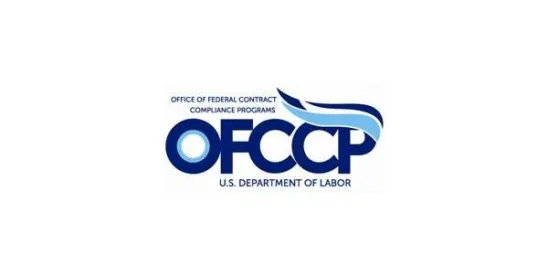In this episode of The Proskauer Brief, partners Harris Mufson and Guy Brenner discuss the Office of Federal Contract Compliance Programs (OFCCP). Harris and Guy highlight OFCCP’s recent activities and discuss what government contactors should expect in 2019, so be sure to tune in.
Harris Mufson: Welcome to the Proskauer Brief, Hot Topics on Labor and Employment Law. I am Harris Mufson. On today’s episode I am joined by my colleague Guy Brenner. We are going to talk about OFCCP developments. Guy, just to start off. Can you just describe what the OFCCP is?
Guy Brenner: For those who are listening in, who are government contractors, they should be very familiar with OFCCP which stands for the Office of Federal Contract Compliance Programs. It is an agency within the Department of Labor that administers special requirements that are imposed on government contractors. Government contractors have special employment-related obligations that go beyond those that apply to employers generally in the marketplace.
Harris Mufson: There was some discussion, particularly at the beginning of the Trump administration, that OFCCP would be dramatically reduced in terms of its impact. Can you describe whether or not that is actually taking place and what you have seen in that regard?
Guy Brenner: That is exactly right, Harris. When the Trump administration came into power, there was a lot of speculation that the OFCCP would wither and as a practical matter, die. That simply hasn’t happened. It took a while for the Trump administration to install new leadership. But when that happened in late 2017, the OFCCP kind of took off and running. What we saw was, in addition to a lot of outreach to contractors and efforts to improve what had materialized in terms of relations between the OFCCP and the contractor community; we also saw a lot of new initiatives and changes including 12 new directives, which were far more than we had ever seen in a year, from the old OFCCP. Those directives announced new programs and changes to existing programs.
Harris Mufson: So let’s talk about those directives in a moment. But first, can you describe what contractors really are focused on; that is particularly what I hear from clients who are government contractors – that they are concerned about OFCCP audits. So what do we know about OFCCP’s audits of contractors over the past year or two since the Trump administration came into office?
Guy Brenner: While the tone from the OFCCP has improved, as have OFCCP contractor relations, audits have interestingly become a lot more expensive for contractors under the Trump administration. That is counter-intuitive. For example, in fiscal year 2017, it was a record year in terms of OFCCP recoveries. They recovered almost $24 million from contractors for alleged discrimination in hiring and for pay equity issues. That was far above what the prior record for OFCCP was. While in the last fiscal year (’18), the number dipped a bit, to 16.5 million – that is still significantly higher than what we saw during the Obama administration when the OFCCP was viewed as a very activist agency. In fact, in fiscal year ‘16 and fiscal year ‘15 combined, that was roughly the same amount that was collected in one year; in this last year even though that was a reduction of off the record pays. So what contractors need to be aware of is, that audits continue to go, the OFCCP continues to be aggressive with the audits and statements made by director Craig Leen before Congress, indicate that this fiscal year they could set a new record for enforcement recoveries. He is actually planning to double the number of audits performed in fiscal year 2019 to 3,500. This fiscal year has already included one consent decree that involves over $4 million in payments to rejected job applicants. So for anyone out there who is under the illusion that enforcement efforts have abated and some contractors don’t even have to worry about them, they are sadly mistaken.
Harris Mufson: So in your prior answer you referenced new directives by the OFCCP. I believe you said there are twelve. Can you describe what those are?
Guy Brenner: We can probably do a podcast on each of the new directives. I can talk about them a lot. There’s one in particular, I think contractors should be aware of, that captures the focus of director Craig Leen. Specifically, just in the way of background, every contractor with a federal contract over $50,000 or more needs to create what is called an Affirmative Action Program or an AAP. AAP’s are the cornerstone of OFCCP’s requirement. They essentially require an annual examination of the contractor’s workforce and its employment practices to ensure there is no discrimination. That is an engaging and effective Affirmative Action. It has been an open secret with some contractors, and maybe many contractors don’t actually prepare their AAP’s on an annual basis as they are required to by regulation. They wait to see if they are to be audited and if they do, they scramble to put them together. Director Leen is on to this. He is determined to end the practice. He created this directive which basically is the Affirmative Action Program Verification Initiative. It essentially will be a new process which is being developed in which contractors will be required to annually certify that they have their AAP requirement in check. Failure to certify will make it more likely that they will be audited. While the details haven’t been announced this program is coming. It is a focal point of the director. My number one piece of advice for the contractors is, if you have been asleep at the switch and are feeling that under the Trump administration, the OFCCP requirement is not something you have to worry about, you need to get your AAP house in order immediately or you are going to find yourself unable to certify compliance when the new program is implemented which is likely in the next few months; you may find yourself with an unforgiving government agency knocking at your door.
Harris Mufson: Thank you very much for joining us on the Proskauer Brief today.




 />i
/>i

